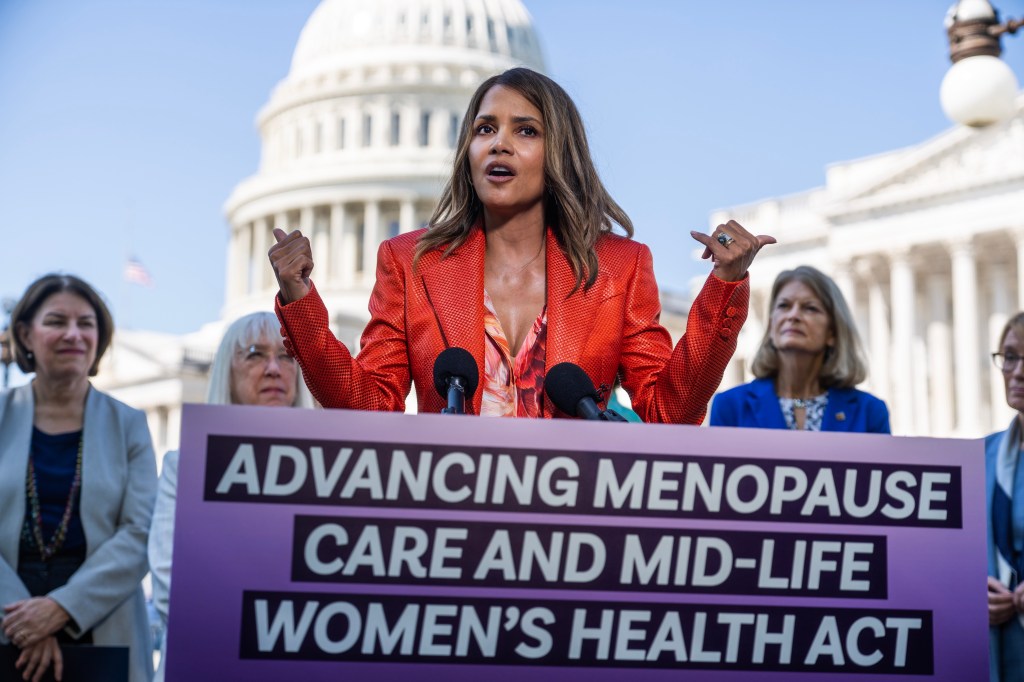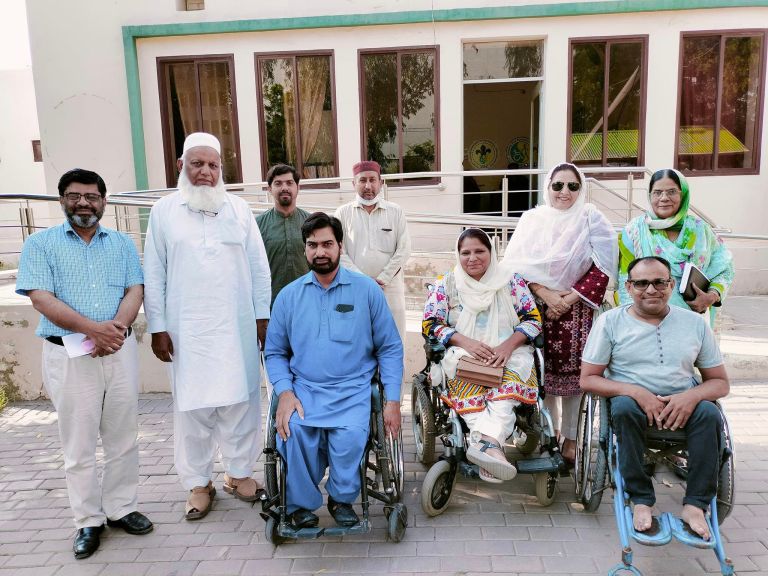“I had no answers, no one to turn to.” That’s how Halle Berry felt when she first started experiencing disruptive perimenopausal symptoms (hot flashes, night sweats, and brain fog) that her doctors offered little help for, she told Time magazine. “I was floored to find the dearth of nothingness in this space — and how little doctors knew. I thought I had the best doctors I could have.”
That realization drove Berry, 58, to be a voice for change — for herself, but also for all women in need of information about their menopause journeys. She began speaking out about what she was going through and redirected her wellness platform, Respin, to focus on catering to and advocating for women in midlife.
“We’re building what I wish I’d had: a resource for women in the midst of menopause, on the cusp of it, or preparing for it,” Berry wrote on the organization’s website. “Menopause impacts over half the world’s population, yet many women are met with shame, stigma, and inadequate care. This ends today.”
Central to the issue, according to the actor, is the lack of education in medical schools. The “defining moment” for Berry, as she explained on The Drew Barrymore Show, was when she received a herpes misdiagnosis at age 54. For 72 hours, she and her partner played the “blame game,” until her doctor called her back, retracted the diagnosis, and all but threw his hands up in the air over the condition she’d gone in to see him about.
“He said, ‘I don’t know. That’s what it looked like,’” Berry explained, adding that her own research helped her understand her symptoms were likely due to perimenopause.
Respin offers the opposite of Berry’s experience: a safe space for women to find both community and a treasure trove of information. Members can connect with experts, nutritionists, and “top menopause coaches” to receive support and learn habits that can improve their well-being. So far, 90% of participants in Respin’s health plan had directional symptom improvement in just eight weeks, per the company, while 62% felt a noticeable improvement in their energy levels.
But Berry’s fight for women’s health isn’t stopping there — it’s taking her straight to Washington, D.C. In 2024, she championed the Advancing Menopause Care and Mid-Life Women’s Health Act, introduced in the Senate that May. The bipartisan legislation would allocate $275 million over five years toward public awareness, menopause research, and health care provider training.

“I’m in menopause, OK?” Berry yelled as she stood alongside senators outside the Capitol to rally support for the bill, receiving laughter from the crowd in response. “The shame has to be taken out of menopause. We have to talk about this very normal part of our life that happens.”
The bill, co-sponsored by 18 members of Congress, has yet to be voted on. But if and when it passes, Berry says she’ll next be taking her cause to universities, hoping to persuade them to incorporate more education around women in midlife into their curricula so that health care providers can get the training they need.
“We women have to start demanding more,” she told Time. “That’s who I am today: a woman demanding more. I am demanding more because we deserve more.”












